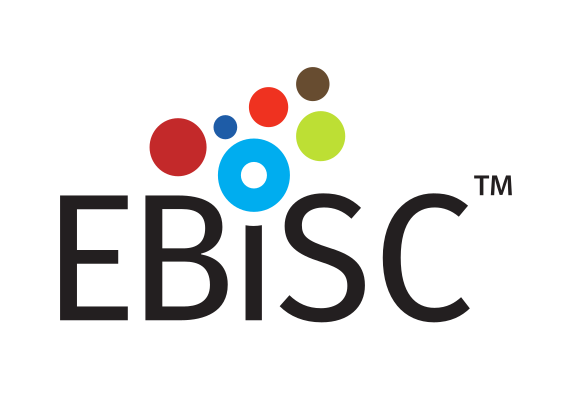If the cells you would like to access are currently listed as unavailable
or you are ordering from outside of Europe please get in touch via
Contact@EBiSC.org.
EDi001-A-5
AST23-2KO-II8B
Gene-edited iPSC line
The cell line is not released.
General#
Cell Line |
|
| hPSCreg name | EDi001-A-5 |
| Alternative name(s) |
AST23-2KO-II8B
|
| Cell line type | Human induced pluripotent stem cell (hiPSC) |
| Similar lines |
EDi001-A-2 (AST23-1KO-3, AST22-1KO-3, AST-23_SCAKO Clone 3, AST-22_SNCAKO Clone 3) Donor's gene variants: SNCA, SNCA, SNCA, SNCA Donor diseases: Parkinson disease EDi001-A-3 (AST23_SNCAKO Clone 1, AST22-1KO-1, AST23-1KO-1, AST22_SNCAKO Clone 1) Donor's gene variants: SNCA, SNCA, SNCA, SNCA Donor diseases: Parkinson disease EDi001-A (AST22, AST23, SAMEA3319992) Donor's gene variants: SNCA, SNCA, SNCA Donor diseases: Parkinson disease EDi008-B (G51D-4, EDINi008-B, EDIi008-B, SAMEA3174606) Donor's gene variants: SNCA, SNCA, SNCA, SNCA Donor diseases: Parkinson disease STBCi004-B-1 (SFC832-03-06 LRRK2WT/WT C47) Donor's gene variants: LRRK2 Donor diseases: Parkinson disease |
Provider |
|
| Depositor | University of Edinburgh (ED) |
| Distributors |
EBiSC
|
External Databases |
|
| hPSCreg | EDi001-A-5 |
| BioSamples | SAMEA7111748 |
| Cellosaurus | CVCL_D0VC |
| Wikidata | Q123031227 |
General Information |
|
| Publications | View all related publications on hPSCreg (1) |
| This EBiSC line can be used for: |
Yes
Research use: allowed
Clinical use: no
Commercial use: no
|
| Subclone of | |
Donor Information#
General Donor Information |
|
| Sex | female |
Phenotype and Disease related information (Donor) |
|
| Diseases | A disease was diagnosed.
|
| Family history | Strong family history of Parkinson’s disease due to autosomal dominant inheritance of SNCA triplication |
| Is the medical history available upon request? | Y Mov Disord. 2011 Sep;26(11):2134-6. doi: 10.1002/mds.23776 |
Donor Relations |
|
| Other cell lines of this donor | |
| All cell lines of this donor's relatives |
Has daughter:
|
External Databases (Donor) |
|
| BioSamples | SAMEA3319991 |
hIPSC Derivation#
General |
|
|
The source cell information can be found in the parental cell line
EDi001-A.
|
|
Reprogramming method |
|
| Vector type | Integrating |
| Vector | Virus (Retrovirus) |
| Genes | |
| Is the used vector excisable? |
Unknown |
| Absence of reprogramming vector(s)? |
Unknown |
| Reprogramming vectors silenced? |
Yes |
Vector free reprogramming |
|
Other |
|
| Derived under xeno-free conditions |
No |
| Derived under GMP? |
No |
| Available as clinical grade? |
No |
Culture Conditions#
The following are the depositor culture conditions, they do not refer to any specific batch.
| Surface coating | Laminin |
| Feeder cells |
No |
| Passage method |
Enzyme-free cell dissociation
EDTA
|
| O2 Concentration | 21 % |
| CO2 Concentration | 5 % |
| Medium |
Other medium:
Base medium: StemMACS™ iPS-Brew XF
Main protein source: Serum concentration: % |
Characterisation#
No characterisation data could be found for this subclone. Please open parental cell line EDi001-A .Genotyping#
Karyotyping (Cell Line) |
|
| Has the cell line karyotype been analysed? |
Yes
No gross chromosomal abnormalities
Karyotyping method:
Molecular karyotyping by SNP array
http:// |
Other Genotyping (Cell Line) |
|
Genetic Modification#
| Disease/phenotype related modifications |
|
